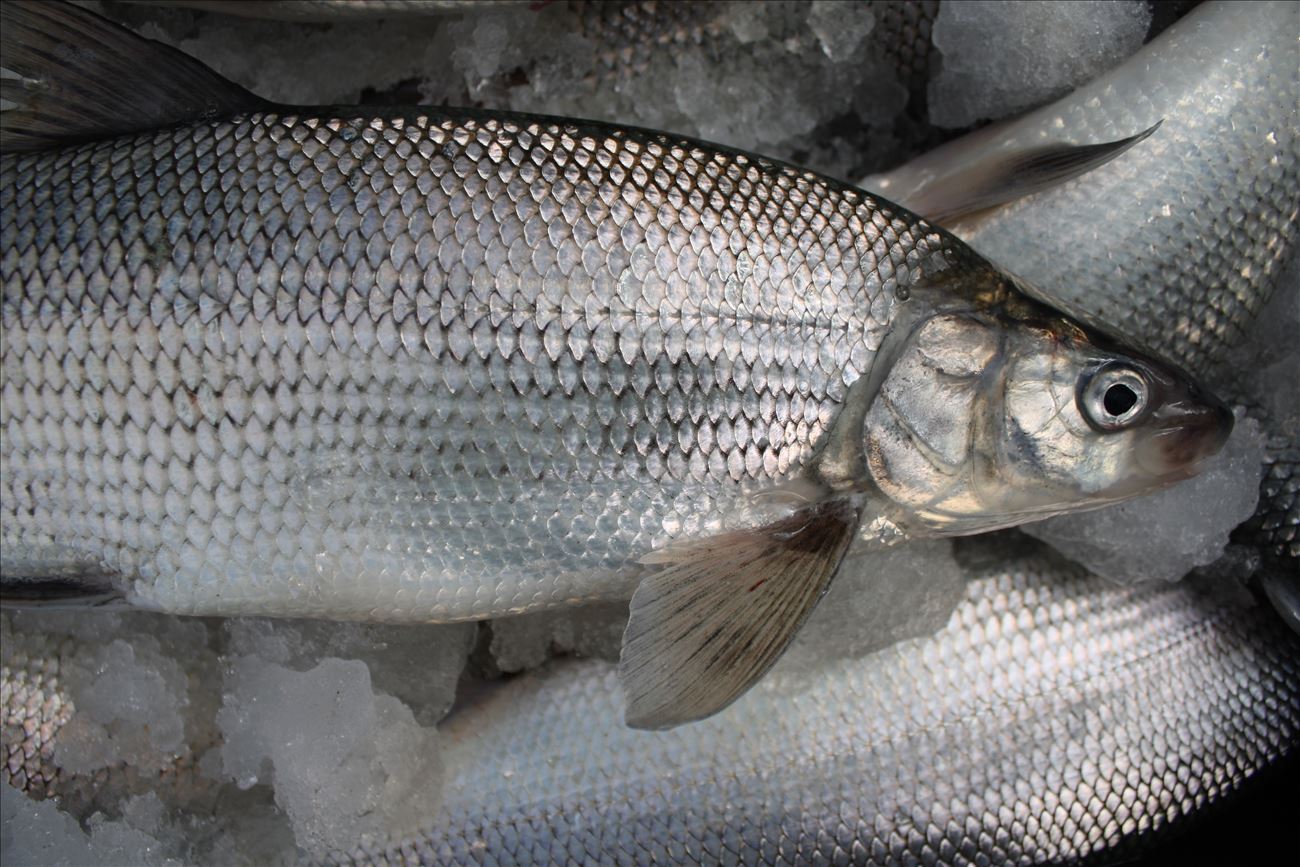A Fish at the Heart of the Great Lakes Fishery
Lake Whitefish, a native of the Great Lakes, could be considered the unsung hero of the Great Lakes fishery. Lake Whitefish have served as an important and popular commercial fish (and occasionally as recreationally caught fish) throughout time, and still today. Today’s Great Lakes commercial fisheries harvest around eight million pounds of Great Lakes whitefish annually. Comprising nearly a quarter of the total Great Lakes commercial harvest – these flavorful fish are valued as a locally and sustainably harvested food source that is both high in nutrition (packed with Omega-3 fatty acids) and economically valuable for fishermen, fish markets and restaurants, and coastal communities across the region.
The Lake Whitefish
Lake Whitefish are related to salmon, trout and char, as they are part of the Salmonidae family. Not as flashy or revered as their salmon and trout cousins, whitefish are silvery with a pale green-brown back are characterized by a small head with a blunt snout overhanging the lower jaw. Older fish often develop a fleshy bump at the shoulders, which makes the small head look even smaller. They are a benthic, cool water fish that feed primarily on Diporeia, other invertebrates, and some small fish and fish eggs. Whitefish spawn in November and December usually in the shallows. As the water temperatures rise, Lake Whitefish school up and swim in the company of fellow whitefish in the dark, cool depths of the Great Lakes, sometimes retreating as deep as 200 feet.
History
The humble, silvery-brown fish has quietly sustained people in the Great Lakes for thousands of years — and continues to. Early Native Americans would make a powder of smoked Great Lakes Whitefish for use in stew, soups and fish pies; they would also mix the powder with fresh blueberries. The Ojibwe word for Great Lakes Whitefish is Atikamig.
Early Explorers were introduced to the whitefish and lauded it as a great food source. Antoine de la Mothe Cadillac wrote (circa 1695): “Moreover, better fish can not be eaten, and they are bathed and nourished in the purest water, the clearest and the most pellucid you could see anywhere. That is the most delicate fish of the lake.” — The Indians of the Western Great Lakes 1615-1760 by Vernon Kinietz (University of Michigan Press, 1940)
Commercial and Sport Fishing
Whitefish generate the greatest income for Great Lakes commercial fisheries in United States and Canada. Commercial fishing, for the most part, is carried out by means of trapnets and gillnets set during the open water season. Today's commercial fishery sustainably harvests more than eight million pounds of Lake Whitefish annually.
The average-sized whitefish in the commercial catch measure 17 to 22 inches in length and weigh 1.5 to 4 lbs. The largest individual on record was more than 42 pounds and was harvested from Lake Superior in 1918. While not typically noted as a game fish, in recent years the Lake Whitefish has been the object of an active sport fishery in many parts of its range. Anglers catch it on a small hook usually baited with a fish egg.
Michigan Sea Grant has worked with the commercial whitefish fisheries throughout the Great Lakes to help promote the native species. To learn more, see the Marketing Great Lakes Whitefish (PDF) article.
Table Fare
Just as it was in the early days, Lake Whitefish is excellent to eat. It has a sweet, light flavor that many who “don’t like fish” can appreciate. Its mildness suits a variety of dishes, while it also adapts to almost any method of cooking. Great Lakes Whitefish contains more omega-3 fatty acids than pink and sockeye salmon. Check out the Michigan Sea Grant Whitefish Cookbook Wild Caught and Close to Home: Selecting and Preparing Great Lakes Whitefish available through the bookstore.
Fresh fish to smoked fish from the local fish market, whitefish dip appetizers to whitefish dinners at your favorite restaurant, and recipes for a family-fun home cooked meal. Explore this map and list of resources to find fish markets, restaurants, and recipes for buying, preparing, and enjoying Great Lakes whitefish.
Source: adapted from Michigan Sea Grant website, Lake Whitefish fish profile
What you can do here
Buy FishEat Fish
| Info | ||
A Great Lakes cookbook celebrating Lake Whitefish fish and fishery. | Info |
Affiliated Organizations: Michigan Sea Grant, Michigan Fish Producers Association
